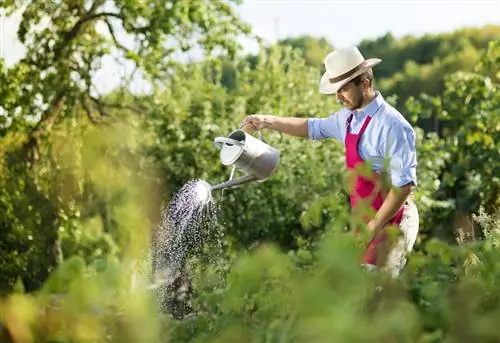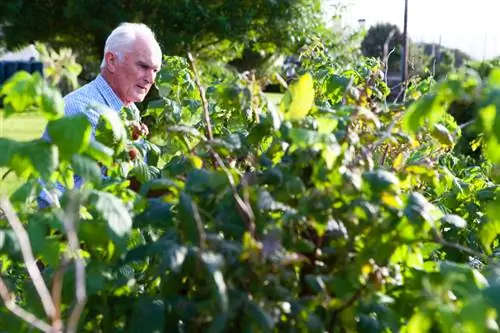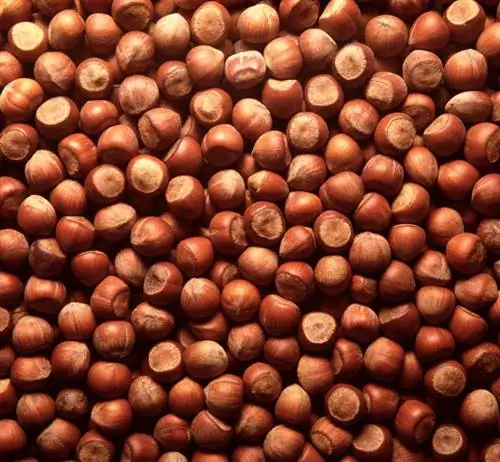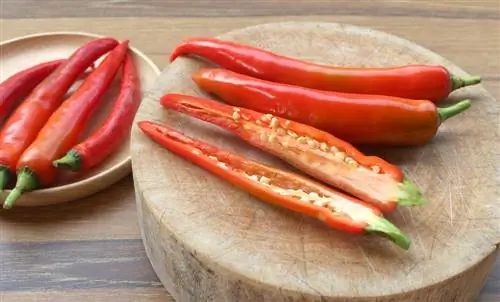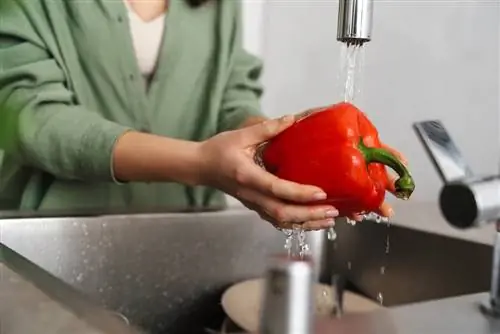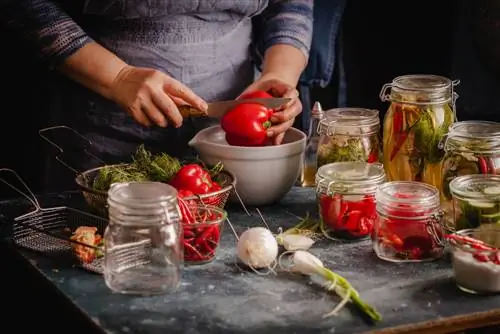- Author admin leonars@hobbygardeners.com.
- Public 2023-12-25 17:45.
- Last modified 2025-06-01 06:02.
If you want to harvest peppers, you have to water the plants regularly. Although watering sounds easy, watering errors are one of the most common causes of stunted growth and poor pepper harvests. In order to enjoy ripe and he althy fruits, you should follow the special watering tips for peppers.
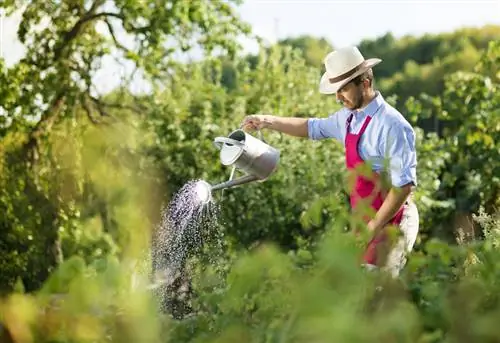
How often should you water peppers and what quality of water is suitable?
Watering peppers properly means watering the soil around the plant 2 to 4 times a week. Low-s alt, lime-free rainwater should be used and attention should be paid to the growth phase and outside temperatures. Avoid overwatering to prevent root rot and disease.
How does the amount of water depend?
It is always noticeable that there are vegetables that are more thirsty than others. Depending on how deeply the different vegetables are rooted in the soil, there are three groups:
- Shallow-rooted
- Medium deep roots
- Deeproots
Shallow roots dry out quickly in the upper soil layers and require more water. Like cucumbers, carrots and peas, peppers are medium rooted. They reach up to 40 centimeters into the ground. Depending on the growth phase and temperature, they can cope with average watering. Deep-rooted plants, on the other hand, can grow up to 70 centimeters deep. Such as asparagus or tomatoes and need little water.
Water correctly depending on the growth phase
The peppers sowed on the windowsill should be sprayed with rainwater or lime-free water twice a week. As soon as the first leaves follow the cotyledons, it is time to plant the young peppers in the greenhouse or garden. These young plants are more thirsty. Because in their original homeland, the South American tropics, it rains every day. Peppers are used to a lot of moisture.
The average is between 2 and 4 watering times per week. In summer heat, water the pepper location sufficiently. But beware! The roots must not get too wet otherwise they will rot and destroy the plant. If peppers drop flowers or fruits, dryness can be the cause.
Watering peppers - this is how to do it more economically and effectively
- In summer heat, the irrigation water evaporates before it penetrates the soil. -Watering early in the morning or at night noticeably reduces water consumption.
- Loosening the soil once is better than watering twice. Because the water seeps into the ground better.
- If you install an irrigation system (€119.00 on Amazon) in the greenhouse, you save half the water.
- Use the forecast, because every heavy downpour replaces watering.
- Watering too much promotes pepper diseases and fungal infestation and dilutes the sweetness and spiciness of the plants.
Tips & Tricks
Peppers are sensitive to s alts. Therefore use low-s alt, lime-free rainwater. Don't water the plants, just the soil, so that the fruits don't rot.

